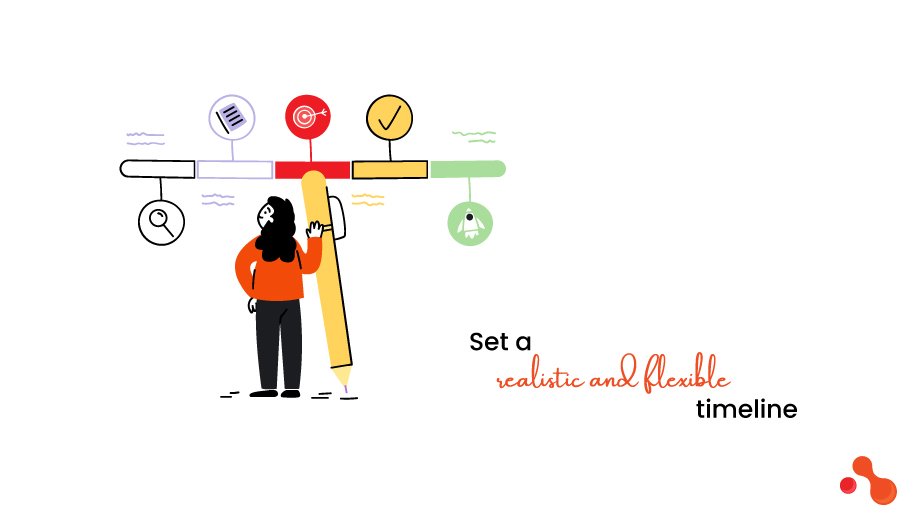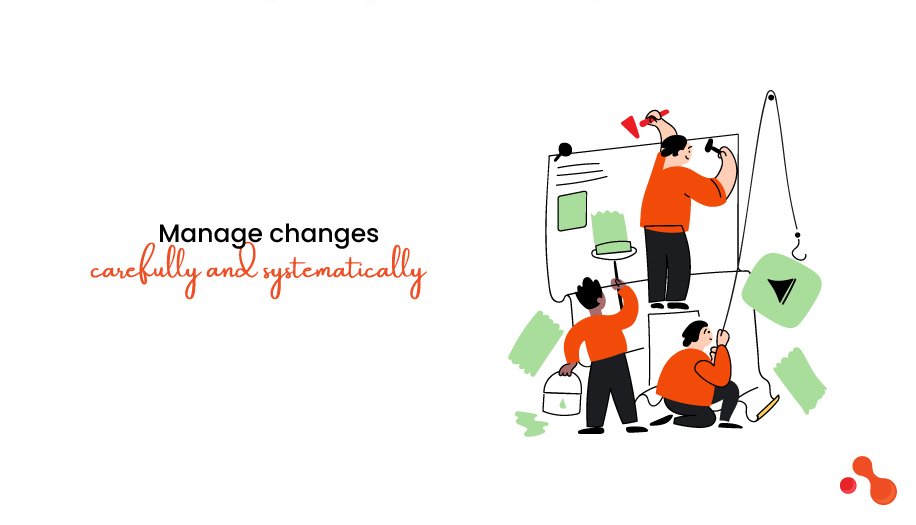Introduction
Software development projects can be challenging and complex, especially when it comes to managing the budget. Many factors can affect the cost of a software project, such as the scope, quality, timeline, the team, and technology. How can you ensure your software project stays on budget and delivers the expected value?
A project manager must focus on the management task to ensure timely completion and maintain good code quality. Those who adopt a proactive approach to budget management instead of reactive, tend to be more successful. Here are some tips to help you effectively plan, monitor, and control your software development budget.
You can check the full guide of the Budget Overruns in Software Development? if you want to manage your budget!
Top 10 Tips To Prevent Budget Overrun
Set a realistic and flexible timeline:
Set a realistic and flexible timeline: Always begin with comprehensive project planning, defining objectives, scope, timelines, and resource requirements. The start of the project is the best time to discuss the goals, prepare the project roadmap, assign roles and responsibilities, fix the deliverables, and establish the timeline. The project roadmap is an overview of the entire project, along with the milestones from start to finish. Strive to make this as realistic as possible.

Use project management tools to visualize it since this will assist in making it more accurate. A good strategy is to break down the project into smaller manageable tasks. Do not forget to allow some buffer time for testing, debugging, feedback, and revisions. Set the project in motion with a kick-off meeting with your team where you should ensure everyone is aware of their roles and responsibilities. The project manager and client should also have a meeting before the start of the project to finalize the project timeline.
Define the scope clearly:
Defining the project scope is the first step of any project and should be done after extensive research and a thorough understanding of the client’s requirements. Changes in the scope down the line can ruin your project timeline and have a cascading effect on all the project stages. In fact, scope creep, as it is referred to, is one of the leading causes of budget overrun.
The scope of a software project is the set of features and functions that the software should provide. A clear and realistic scope can help you avoid unnecessary changes, delays, and rework that can increase the project’s cost. Always consult with the stakeholders before defining the scope and incorporate their expectations and priorities. You should also document the scope in a detailed and unambiguous way and get it approved by all parties involved.
Manage changes carefully and systematically:

Changes are inevitable in any software project. Some of the common reasons for this is due to feedback from the client, changes in requirements or additional requirements, technical limitations, and market trends. It is not easy to anticipate every detail of the project during every stage; hence, always have a contingency plan. Handle such uncertainty wisely to avoid project failure and budget overrun. It is an excellent practice to take some time to identify potential risks during the project and prepare for this in a contingency plan. This process can be made simpler with the help of a change request form or tool to record and track changes.
Regular Communication:

Communicating effectively and frequently with the stakeholders can help you build trust, rapport, and collaboration, manage expectations and feedback, and resolve conflicts and issues. On the contrary, poor communication can increase the level of frustration and cause delays in the project. Collaboration tools can improve communication effectiveness and avoid hiccups in the project. Clearly define the channels and tools, such as email, phone, video conference, or chat. You should also use a communication plan (reporting plan) or matrix that specifies each communication’s purpose, frequency, format, and audience. Maintain open communication among team members and stakeholders to ensure alignment and prompt issue resolution.
Tools and Technology:
There is a tool to handle every aspect of software development, similar to where there is now a mobile app for everything on the mobile app store. Employ project management tools and technology to streamline processes, enhance productivity, and control costs. Such tools significantly impact the project’s overall success; in fact, they are lifesavers that help you achieve your project goals. The typical features of such tools include task and resource management, automation, and time tracking. Adopting an agile methodology will allow for greater flexibility, iterative development, and quick adaptation to changes without disrupting the budget.
Monitor and control the budget regularly and proactively:
Monitoring and controlling the budget is an ongoing activity that involves measuring the actual performance of the project against the planned performance. It also involves identifying any variances or deviations from the budget baseline and analyzing their causes and effects. Using tools for this purpose will help identify measurable parameters and define KPIs for the project’s success. Regularly track project progress and expenses against the budget to identify and address issues early. Identify potential risks and develop strategies to mitigate their impact on the budget
Estimate the cost accurately and transparently:
The cost of a software project is the amount of money required to complete the project. Estimating the cost is a vital stage of the project; it is the one chance you have to get it right and prevent a budget overrun. It is important to account for cost variance for reasons you least expect.
The greater the complexity, the harder it is to estimate accurately and the more the chances of budget overrun. One can use several methods to create an accurate estimation; in fact, Agile methodology provides a framework for just this. An accurate and transparent cost estimate can help you allocate the budget properly, communicate with the stakeholders, and track the project’s progress.
Use reliable methods and tools, such as historical data, expert judgment, parametric estimation, or bottom-up estimation. Do not fail to consider all the direct and indirect costs, such as labor, materials, equipment, software licenses, overheads, contingencies, and risks. Spend more time during the project’s initial stages and select the best pricing structure that suits your project.
Choose the right team and technology:
The team and technology of a software project are the people and tools involved in developing the software. Choosing the right team and technology can help you improve the quality and efficiency of the project, reduce errors and bugs, and save time and money. The team you select should have the skills necessary to develop your project.
There are many ways you can accomplish this. You have the option to hire an in-house team and be actively involved in the project management tasks. Alternatively, you have the option of outsourcing it to a remote team, and the task of managing software projects will ensure timely delivery and within the budget.
A professional team like Acquaint Sofftech can deliver the project by avoiding budget overrun issues since they already have a great deal of experience doing so.
Hire remote developers from Acquaint Softtech to succeed. Also, for consultation on choosing the technology, you should consider its suitability, scalability, reliability, security, compatibility, and maintainability. You should also evaluate its cost-effectiveness and return on investment.
Test and review your software regularly:

Testing and reviewing your software regularly is essential for ensuring its quality and functionality. The testing strategy should ideally include different types of testing, such as unit testing, integration testing, system testing, user acceptance testing, performance testing, and security testing. Additionally, include a code review process and implement automated testing.
Implement feedback loops and continuous improvement:
Feedback loops and continuous improvement are key for ensuring that your software meets the needs and expectations of your users and stakeholders. Collect feedback from your users and stakeholders throughout various stages of the development process. Optimize the project after analyzing the feedback.
Conclusion
The ideal method to keep your software development project on track and stay on budget is to follow the tips in this article. Trusting a well-established software outsourcing company like Acquaint Softtech will work in your favor. Our extensive experience and extensive skills in various technologies will work to your advantage.





